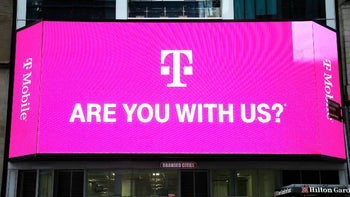Facebook and other tech giants unite against ‘1984’-like governmental gag practices

Facebook has challenged an order that prevents it from notifying three users of a governmental data request on their accounts
Almost seventy years ago, as he wrote the ‘1984’ bestseller, British author George Orwell described an anti-utopian form of existence, where every move and word are monitored by an ever-aware government. The novel tells of a scenario where the state knows of what and when you eat, where and with whom you go, when or where you sleep – and obtains such info at its own will, without any notification. The only happening that Orwell did not manage to predict in the book was a wave of independent commercial bodies that have the scale and influence to challenge large scale unconstitutional acts.
A recent article by the Guardian provides some staggering detail of how the US government exercises its power to obtain user information from tech companies, attaching what are known as ‘gag orders’ to its data requests about users. Such an order effectively bars a given company from publicly announcing affairs of surveillance conducted on people by state bodies.
Now, you do not need to be a lawyer to understand the impact of such gag practices and we trust the analogy with Orwell’s world is becoming clear now.
According to the fourth amendment, people have the right to know when and if the government searches or seizes their property; while the first amendment allows companies to communicate to their clients how the government conducts its investigations. At the same time, most tech companies have own policies to make users aware of such investigations, unless the matter concerns a life-threatening emergency, child sexual exploitation and terrorism.
All of these sound like smart safeguards and make sense, but do not represent the reality. According to the Guardian, more than half of governmental data requests to tech companies about account information and user data are coupled with a gag order. Tech enterprises are thus bound by law to not divulge what info the state asked for to anyone and could be taken to court by the government for doing otherwise.
In response to such state practices, Facebook has taken it to the court to challenge a legal order that bars the social media from notifying three of its users about search warrants that seek all communication, identifying information and other records from Facebook’s archives for a three-month period. The government’s data request in question is based on “potential felony charges” – which could obviously range from pocketing someone’s lunch money to plotting a terrorist act – no one can and no one will know, thanks to the discussed gag practice. The scope for abuse of personal information is huge and this is just a single example.
Facebook’s challenge is supported by Google, Apple, Microsoft, Twitter and others, as well as liberties groups, such as the American Civil Liberties Union, the Electronic Frontier Foundation, Access Now and the Reporters Committee for Freedom of the Press.
Tech companies are faced with a very tough balance to hit – being a protector of human rights and a global expression forum are a tough combo to manage. However, such companies have not remained silent and have spoken up about unconstitutional governmental surveillance on many occasions. After all, they are the key holders to billions of user accounts and also have the cash to challenge the state at will.
The “1984” book makes a chilling prediction about the future. However, the future does seem to be now and we are not prepared for it. The only aspect that is different between the Orwellian world and present reality is the fact that the media has conscience and is not directly linked to the government. But it’s the second that makes and passes the laws, and we can’t know how long for Facebook and co will be able to hold their resilience.
source: The Guardian
Now, you do not need to be a lawyer to understand the impact of such gag practices and we trust the analogy with Orwell’s world is becoming clear now.
However, unlike in the book, the world now has companies, in the likes of Facebook, Twitter, Microsoft and Apple, who are not willing to oblige with unconstitutional tapping into their users’ lives. Along with civil liberties groups, said companies argue that access to user data beyond the scope of each company’s own policies violates amendment rights and threaten the very basis of free speech.
According to the fourth amendment, people have the right to know when and if the government searches or seizes their property; while the first amendment allows companies to communicate to their clients how the government conducts its investigations. At the same time, most tech companies have own policies to make users aware of such investigations, unless the matter concerns a life-threatening emergency, child sexual exploitation and terrorism.
All of these sound like smart safeguards and make sense, but do not represent the reality. According to the Guardian, more than half of governmental data requests to tech companies about account information and user data are coupled with a gag order. Tech enterprises are thus bound by law to not divulge what info the state asked for to anyone and could be taken to court by the government for doing otherwise.
Facebook’s challenge is supported by Google, Apple, Microsoft, Twitter and others, as well as liberties groups, such as the American Civil Liberties Union, the Electronic Frontier Foundation, Access Now and the Reporters Committee for Freedom of the Press.
Tech companies are faced with a very tough balance to hit – being a protector of human rights and a global expression forum are a tough combo to manage. However, such companies have not remained silent and have spoken up about unconstitutional governmental surveillance on many occasions. After all, they are the key holders to billions of user accounts and also have the cash to challenge the state at will.
source: The Guardian











Things that are NOT allowed: